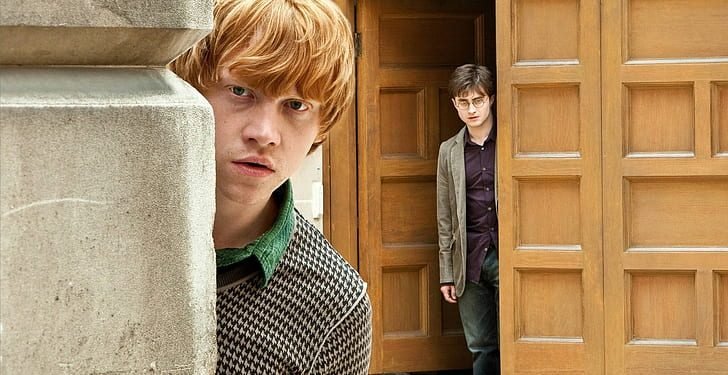Rupert Grint, who played Ronald Weasley in the Harry Potter books, weighs in on a hypothetical franchise relaunch. Grint was only 11 years old when he was cast as Harry’s best friend in 2001’s Harry Potter and the Sorcerer’s Stone, based on J.K. Rowling’s best-selling fantasy books.
He would reprise his role seven more times before the famed film series ended with 2011’s Harry Potter and the Deathly Hallows – Part 2. Grint has continued to appear in several film and theatrical projects at Hogwarts, including M. Night Shyamalan’s latest apocalyptic horror thriller, Knock at the Cabin.
Several of Grint’s former co-stars, including Daniel Radcliffe and Tom Felton, have gone on record in the years since the original series ended, implying that a Harry Potter franchise remake is inevitable.
Grint now joins the chorus of former Hogwarts students in informing fans that a new take on the popular property will be released at some time in the future. During an interview with GQ, the former wizard also expressed interest in seeing the source material adapted into a television series, stating that “it would actually work.” Look at his comments below:
Could a Harry Potter TV reboot be a success?
While the Fantastic Beasts trilogy did not achieve the same box office success as the first Harry Potter films, Warner Bros. Discovery is unlikely to forsake the extremely valuable IP entirely. WBD CEO David Zaslav indicated late last year that he was open to the concept of new Harry Potter films if Rowling was on board.
While many viewers assume the Wizarding World’s next logical move to be a film adaptation of the stage performance of Harry Potter and the Cursed Child, Grint’s notion of a television remake may be the best route ahead for the series.
With other high-profile fantasy shows like House of the Dragon and The Lord of the Rings:
Rings of Power already attracting large audiences on HBO and Prime Video, a live-action Harry Potter series could attract an even larger audience by appealing to both younger and older fans. Furthermore, a long-running television series might pay attention to many of the book’s minor aspects that were either skimmed over or left out entirely in the original movie.
Of course, the Harry Potter franchise has recently lost many devoted fans due to a series of contentious remarks by Rowling, many of which have been publicly condemned as hurtful and transphobic. These factors, combined with the underwhelming performance of the Fantastic Beasts films, meaning that any attempts to renew or rebuild the Wizarding World will necessarily start from a less-than-ideal place.
If a Harry Potter television revival is to succeed, the studio must find a way to wash away the unpleasant flavor of the franchise’s recent failures and scandals. Even still, it will have to cope with the immense legacy of the original movie. Perhaps the appropriate cast and showrunner could find a way to overcome these tremendous obstacles. Still, it would be far more difficult than any ever featured in the Tri-Wizard Cup.


